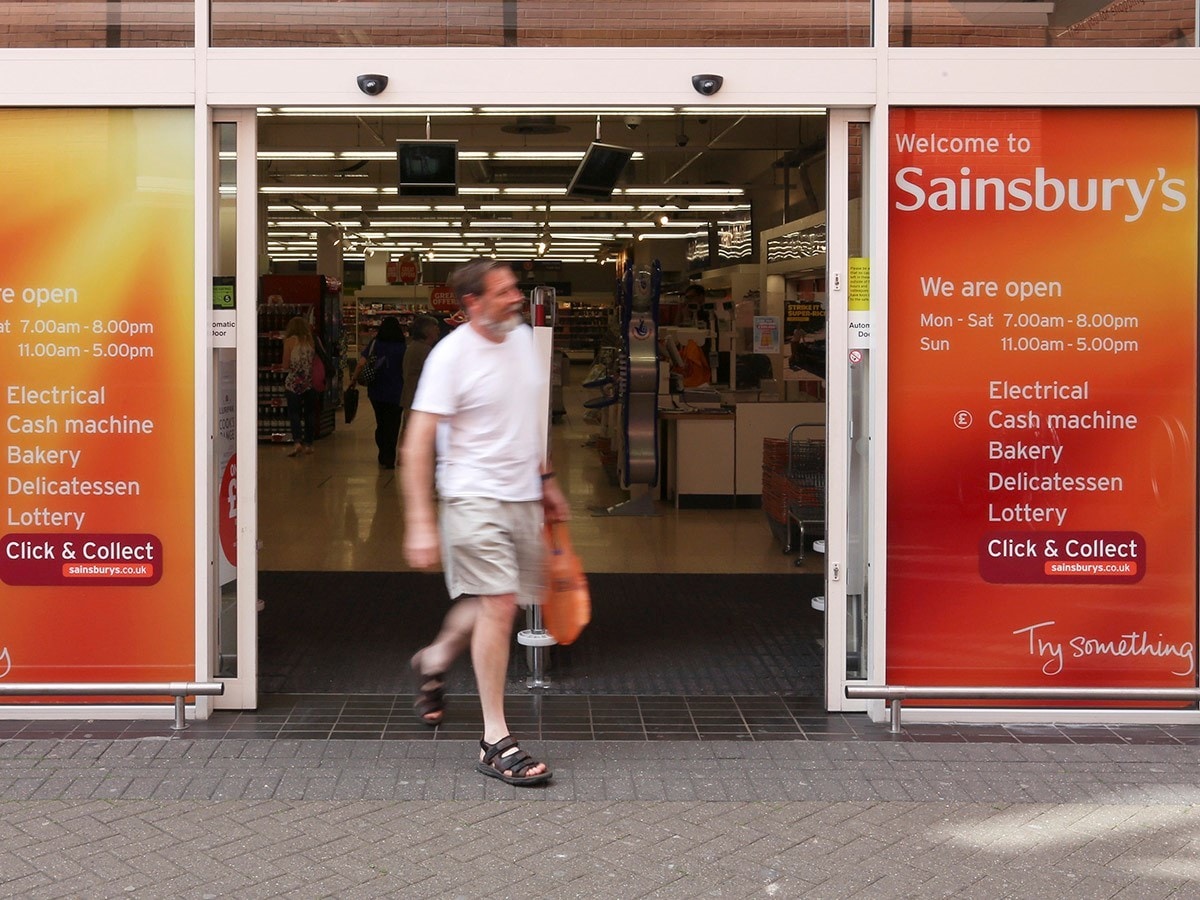Sainsbury’s [SBRY] share price has fallen to the end of the British supermarkets queue.
In the past year through 24 September, the stock has plummeted 9.2%, underperforming the UK consumer retail industry’s 4.7% decline in the same period, as shown by data from Simply Wall Street.
The downward trend started in 2019, when Sainsbury’s share price ended the year down 8.2%. While the stock appeared to be off to a good start in 2020 — it climbed to a high of 232.10p on 2 January — the coronavirus pandemic-induced downturn led it to fall as low as 174.95p on 12 March.
It didn’t take long for Sainsbury’s share price to recover though, and over the next four trading sessions, it rebounded to 216.30p by 18 March. The stock has since fluctuated, falling to a low of 182.50p on 26 May before rising back up to 200.30p on 19 June.
As of 25 September’s close, Sainsbury’s share price is down 15.02% year-to-date at 197.25p.
Given that the UK has such a competitive grocery market, investors will have to do their homework before deciding whether or not Sainsbury’s share price is worth it.
Discounted shares attract heavyweight investor
As of May, Sainsbury’s has the second-largest share of the UK grocery market at 15%, behind Tesco at 26.9% and just ahead of Asda at 14.1%, according to Statista.
One investor who has staked his claim on Sainsbury’s long-term recovery and continued growth is Daniel Křetínský, CEO of Energetický a průmyslový [CORR], the biggest energy group in Central Europe.
15%
Sainbury's stake in the UK grocery market
The Czech billionaire has built a 3.05% stake in the group through his investment vehicle VESA Equity Investment, making him its fourth-largest shareholder as of 17 September according to Reuters.
The investment is part of a wider strategy that Křetínský has been executing, which looks to focus on buying up shares in struggling retailers. In September last year, he bought a 4.63% share of France’s Casino Guichard-Perrachon [CO], according to the Financial Times, which grew to 6.88% in March.
Křetínský also bought a 29.99% stake in German retailer Metro [B4B] in November 2019, which he acquired through EP Global Commerce, another vehicle he owns. He is preparing a takeover offer in a deal that will value its shares at €3.1bn, the Financial Times reports.
The news of Křetínský’s bet sent Sainsbury’s share price up 3.2% on 17 September.
“We view Sainsbury’s as an attractive investment opportunity for the long-run, even against the backdrop of the highly competitive UK grocery market,” Branislav Miškovič, investment director of VESA, said in a statement.
He believes the group’s brand legacy across southeast England and its online food delivery service will continue to make it an attractive convenience to customers.
“We view Sainsbury’s as an attractive investment opportunity for the long-run, even against the backdrop of the highly competitive UK grocery market” - Branislav Miškovič, investment director of VESA
Hedge funds bite
Despite the long-term investment case that Křetínský highlights, an increasing number of high-profile hedge funds have been ramping up bets against the supermarket.
Third Point Management and Citadel, along with Man Group’s other hedge fund units, AHL and GLG Partners, all increased their short positions on the stock in September, according to Hedgeweek.
The publication also noted that BlackRock Investment Management has built a 2.65% net short in the FTSE 100 stock. The mounting number of bets against Sainsbury’s share price recovery has made it one of the top five most shorted stocks in the UK, according to the Financial Times.
The reason for this darkened outlook could be to do with the fact that Sainsbury’s expects coronavirus-related costs to shrink profits by up to £500m this year. There are also concerns surrounding its banking business, which will likely be hurt by bad loans from its lending and insurance services.
However, Sainsbury’s share price is currently rated a Buy among the 14 analysts polled by MarketBeat, who give the stock a consensus price target of 229.29p. Hitting this would see a 16.2% upside from 25 September’s closing price.
| Market Cap | £4.234bn |
| PE ratio (TTM) | 33.21 |
| EPS (TTM) | 5.80 |
| Quarterly Revenue Growth (YoY) | 0.1% |
Sainsbury's share price vitals, Yahoo Finance, 30 September 2020
Disclaimer Past performance is not a reliable indicator of future results.
CMC Markets is an execution-only service provider. The material (whether or not it states any opinions) is for general information purposes only, and does not take into account your personal circumstances or objectives. Nothing in this material is (or should be considered to be) financial, investment or other advice on which reliance should be placed. No opinion given in the material constitutes a recommendation by CMC Markets or the author that any particular investment, security, transaction or investment strategy is suitable for any specific person.
The material has not been prepared in accordance with legal requirements designed to promote the independence of investment research. Although we are not specifically prevented from dealing before providing this material, we do not seek to take advantage of the material prior to its dissemination.
CMC Markets does not endorse or offer opinion on the trading strategies used by the author. Their trading strategies do not guarantee any return and CMC Markets shall not be held responsible for any loss that you may incur, either directly or indirectly, arising from any investment based on any information contained herein.
*Tax treatment depends on individual circumstances and can change or may differ in a jurisdiction other than the UK.
Continue reading for FREE
- Includes free newsletter updates, unsubscribe anytime. Privacy policy





